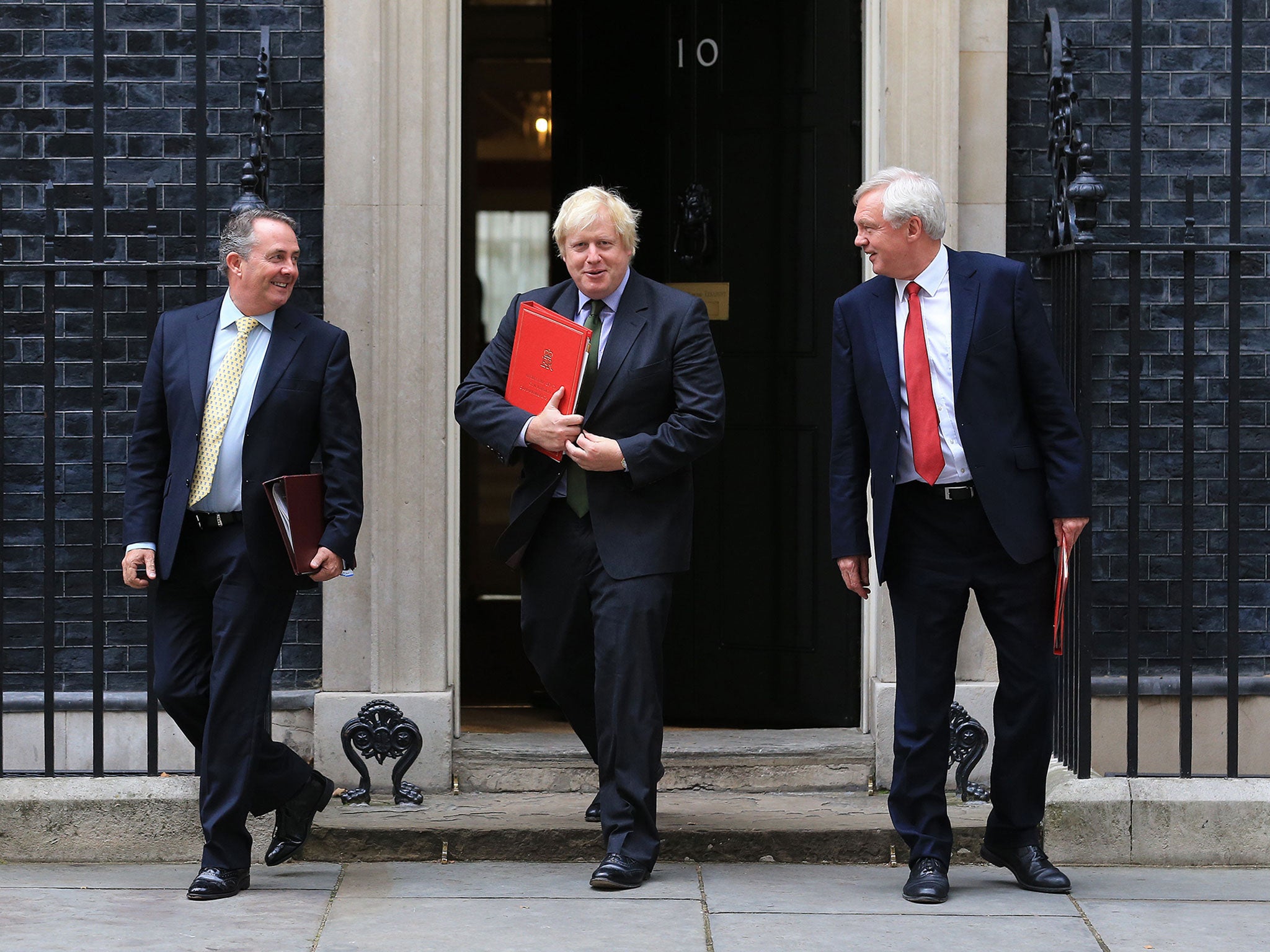Australia says there will not be a Brexit trade deal with UK for years
Australian minister says trade deal with UK can only happen 'when the time is right'

Britain is also at the 'back of the queue' for a trade deal with Australia after the country's minister in charge of striking them said a UK agreement could be almost three years away and would come after an EU pact.
Trade Minister Steven Ciobo warned that negotiaing deals are "fraught with complexity" as he and his UK counterpart Liam Fox launched a working group to scope out a potential British arrangement.
Mr Ciobo's admission on timings tempers the bold tone adopted by the UK Government in the wake of Theresa May's meeting with Australian Prime Minister Malcolm Turnbull at the G20 in Hangzhou.
The minister indicated that real detailed progress on an actual agreement could not begin until Brexit was complete, adding: "Based on what I’ve been told, if Article 50 [launching formal Brexit talks] is presented quarter one or quareter two next year, and then a two-year window in relation to that, so you would expect that it’s at least two and a half years off.”
He emphasised that once formal talks did begin, trade deals can be difficult to complete: "Negotiating trade deals is fraught with complexity. There is always domestic sensitivities between negotiating parties, concerns and consideration that need to be given to particular industries or particular approaches or certain regulatory frameworks, but it's important that you also don’t get too caught up in the detail.”
Asked whether an EU deal would take precedence he said "it will" because early discussions with the European Union have begun and are more advanced than they are than with the UK. A scoping study for the EU talks is due to report back in the new year, with formal talks on an Australia/EU deal expected to start in the first half of 2017.
Speaking on BBC radio, Mr Ciobo added that in the period when the UK is in Brexit talks, he hoped to make as much progress as possible with the EU. A recent European deal with Canada took seven years to seal.
The scoping group announced by Mr Ciobo and Mr Fox will also look at "trade policy issues of mutual interest" such as World Trade Organisation processes and potential new trade blocs including other countries.
When Mrs May appears in the Commons today she will likely be questioned on the matter, as well as on how Britain might control immigration after exiting the EU.
During her visit to China, she ruled out the introduction of an Australian-style points-based system for immigration policy as proposed by the Leave campaign, saying it was "not a silver bullet" to reduce the numbers coming to the UK.
But her spokeswoman poured cold water on suggestions that she has instead plumped for a work permit system which would require EU nationals to secure a job offer before coming to settle in the UK.
The Prime Minister has distanced herself from Brexit Secretary David Davis's suggestion that it is "very improbable" the UK can regain control over its own borders while remaining part of the European single market.
The apparent rebuke sparked concerns that ministers are "confused" and cannot agree policy on leaving the European Union, and Mrs May is expected to face questions on the issue after delivering a Commons statement on the G20 summit in China.
The conundrum of how to maintain the economic benefits of single market membership while also ending free movement of EU citizens - seen by many as incompatible positions - has become central to the debate over how to deliver Brexit.
Mr Davis made his remarks on the single market during a lengthy Commons speech on Monday which MPs derided as "waffle" and "empty platitudes", and Mrs May can expect to face calls for more detail.
Despite Mr Davis's comment being made from the despatch box - where ministers are expected to speak on behalf of the Government - the Prime Minister's spokeswoman said he was expressing a personal opinion rather than official policy.
She said Mrs May maintained an "open mind" about what could be secured from negotiations with the remaining 27 member states under Article 50 of theEuropean Union treaties, and planned to be "ambitious" in her stance.
Join our commenting forum
Join thought-provoking conversations, follow other Independent readers and see their replies
Comments